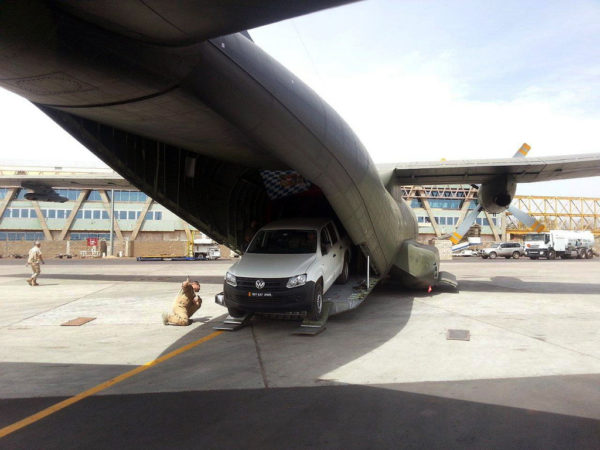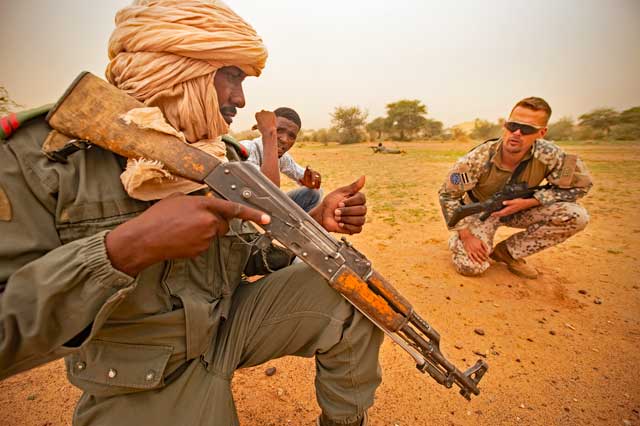In the heart of the clearing house. The EU headquarters at Euro-African level

(BRUSSELS2, report) A small cell has been operating within the European Union headquarters on avenue Cortenbergh for almost a month. B2 was able to go there to observe the work of these soldiers. At first glance, nothing exciting. Computers, screens, emails and phones... and maps. The main instruments of these logistics specialists. Their mission is, in fact, simple in appearance: to centralize all the requests that the African troops who serve or will serve in AFISMA, the international mission under African leadership in support of Mali, may encounter. And pass them on to the Member States of the Union to see if there is an offer. Or vice versa, if a state offers special support. " We also coordinate with other players who are not members of the Union (USA, Canada, etc.)” it is reported to the EU General Staff.
A facilitating structure
« It is a facilitating structure explains the EU Chief of Staff, General (Dutch) Ton Van Osch. " It serves to exchange information between what Africans want and what Europeans can provide. It is not operational control. » The structure was put in place rather quickly. While the Europeans decide - during a Foreign Affairs Council convened exceptionally on January 17 - to express their support for the French intervention in Mali, the weekend is devoted to the final preparations. And the structure is operational from the following Monday, January 21. It should work “as long as AFISMA needs support” add an officer. The advantage of this device is that it does not really cost. Since it is essentially based on the staff of the European Union General Staff. “It is not a new structure, it is a mechanism He adds.
The demands are very varied
The definition of logistics support is very broad says an officer. This can range from air transport to tents, vehicles (heavy goods vehicles), weapons, means of transmission. " All kinds of equipment that may be needed in operation or to ensure C2 (control and command) ". Requests are centralized in Abuja, the Nigerian capital, where ECOWAS has its headquarters, by a European liaison officer (of Belgian nationality) and sent to Brussels, to the headquarters of the General Staff. There they are assessed, if necessary by an expert from the General Staff. Several specialists can thus intervene on a request: transport, logistics, customs... We also coordinate with other players who are not members of the Union (USA, Canada, etc.). » Because it is not so much a question of finding the material requested but also of delivering it. No need to go too far. Just push a few desks further. Here is the "planning cell", in charge of aerial movements. They will be able to call on their counterparts in Eindhoven from the MCCE.
Le Movement Coordination Center Europe centralizes air transport availability and requests. “It's a very good tool - specifies General Van Osch - a very good example of pooling and sharing. A European initiative that can be used both for NATO and for the European Union or for a national interest. The interest of the device is that a country cannot block a request. " If a country does not want to participate, it does not participate. But it does not block the machine. »
A precedent: Libya
The method is not new. It has already been used for the evacuation of Europeans and other foreigners during the civil war in Libya. At the time, 4400 people had been evacuated in this way. it was " somehow easier to organize in terms of logistics “, Testifies an officer. Since there was only one plane flow in one direction. On the other hand, it was more complex to manage, since there were several nationalities; and he " had to check that the consular lists we had were consistent with the people on site a person who participated in these operations told B2. Because the names had to be checked. But the details are arranged directly between the Member State concerned and the applicant.
(*) In Bamako, another liaison officer (French) can also centralize certain requests from the Malian army or African troops already present in the Malian capital.
Read also:



